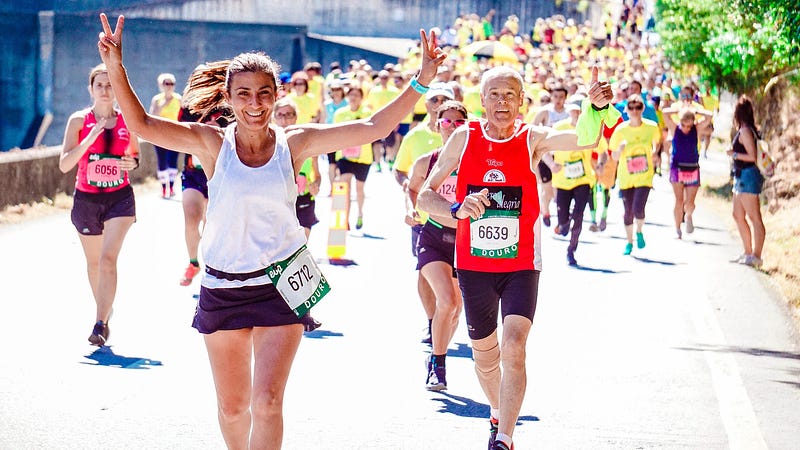Unlocking Your Running Potential: Age is Just a Number
Written on
Chapter 1: The Myth of Age in Running
When someone asks, “What should I do as a 65-year-old runner?” it reflects a common misconception.

Photo by RUN 4 FFWPU from Pexels
As a kinesiologist, I frequently encounter the question, “What type of exercise is suitable for someone of my age?” The truth is, this inquiry is quite complex. In the realm of running and physical activity, age is often less relevant than many might assume. Creating a training plan based solely on age is not feasible.
To illustrate, I have clients in their 40s who struggle with basic walking, while others in their 70s are still competing in 5km races. Although age-related physical changes are a reality, the specific number representing your years doesn’t play a pivotal role in designing an exercise regimen.
Section 1.1: What Matters More Than Age?
As a health expert, I find it far more insightful to assess an individual's fitness level rather than their age. While age certainly has its importance, it should not be the primary factor in exercise recommendations. Relevant information includes the volume, intensity, and frequency of current training—encompassing all physical activities, from hobbies to daily life. Additionally, understanding chronic conditions, past injuries, exercise barriers, and future goals is crucial.
It’s challenging to find effective running guidelines based on age alone, as this approach often leads to misleading training recommendations. For instance, heart rate estimates or V02max calculations based on age can significantly underestimate an older adult’s fitness level. Instead, it's advisable to collaborate with a trainer or physiotherapist who can tailor a program based on your unique fitness profile and injury history.
Section 1.2: Moving Beyond Age Stereotypes
As a society, we must shift away from the belief that age categorizes individuals for exercise purposes. This mindset can result in misguided training plans and confusion. While age can subtly influence training, it is far less critical than most believe. Focus instead on your current fitness level as a guiding factor for your training.
Whether you are highly fit or just starting your fitness journey, adopting this perspective will yield better results and reduce the risk of injury or burnout.
The first video, "Does age matter when running for president of the United States? | OUTBURST," explores the complexities of age and capability in various contexts, highlighting how age can often be a misleading indicator of potential.
In Closing
If you’re seeking advice on running, don’t let your age dictate your approach. The truth is that everyone is at different training levels, irrespective of age. By prioritizing your current fitness status, you can set realistic benchmarks for progress. It’s time to abandon the notion that age restricts your athletic potential! This mindset will empower you to pursue your goals without being confined by a number.
Happy training!
The second video, "WHY IT'S NEVER TOO LATE TO START RUNNING!" emphasizes that beginning your running journey can be done at any age, encouraging viewers to embrace their fitness aspirations.